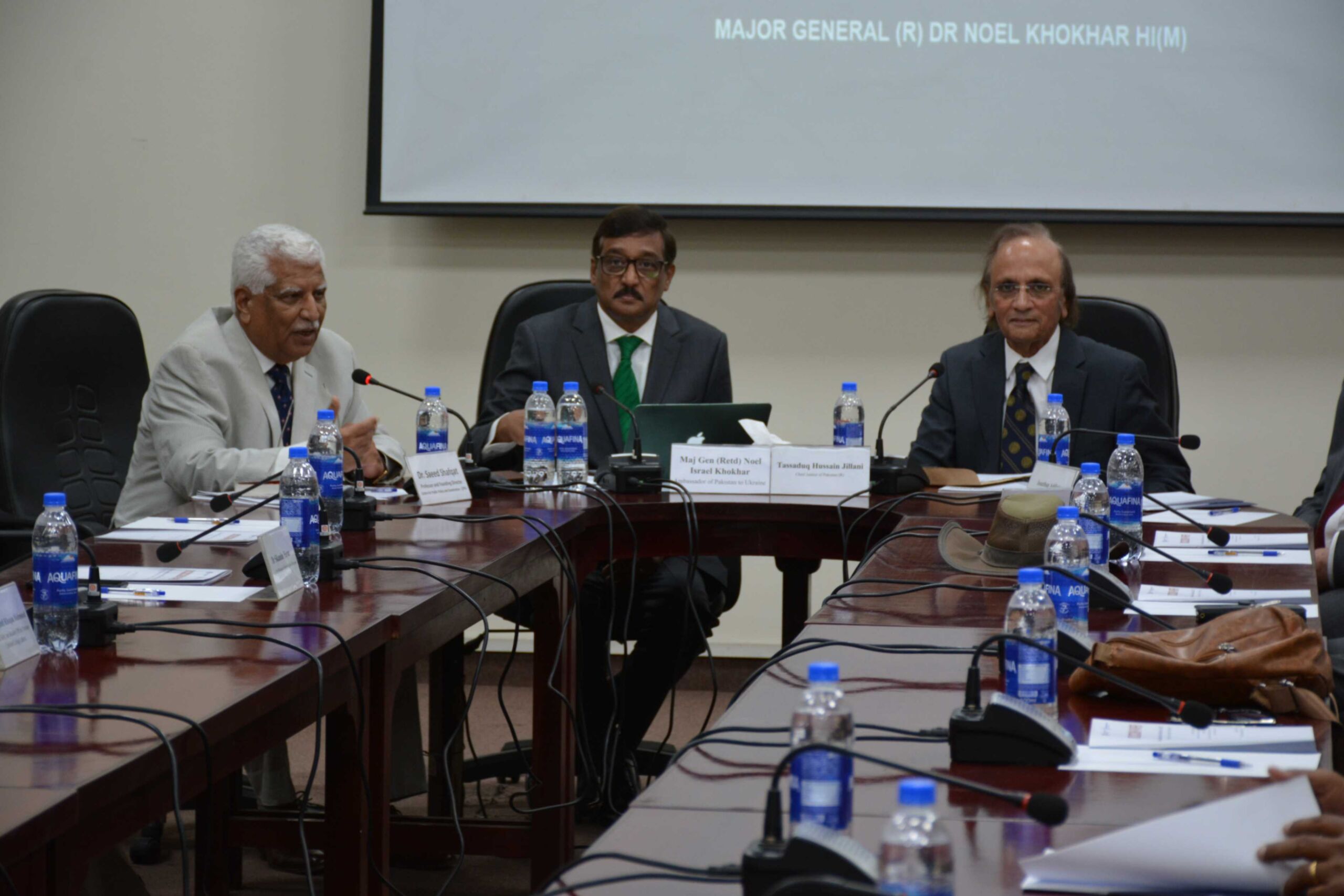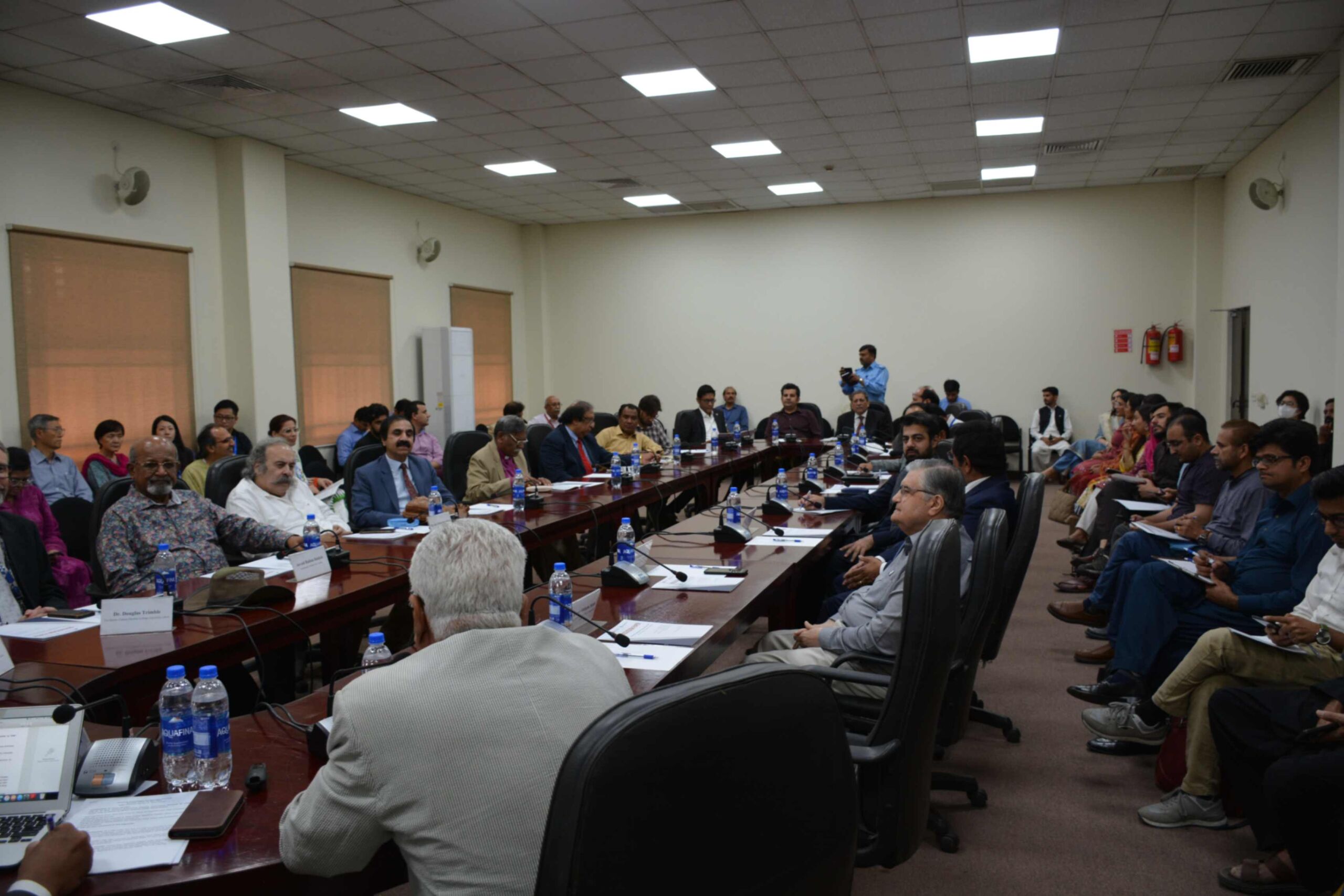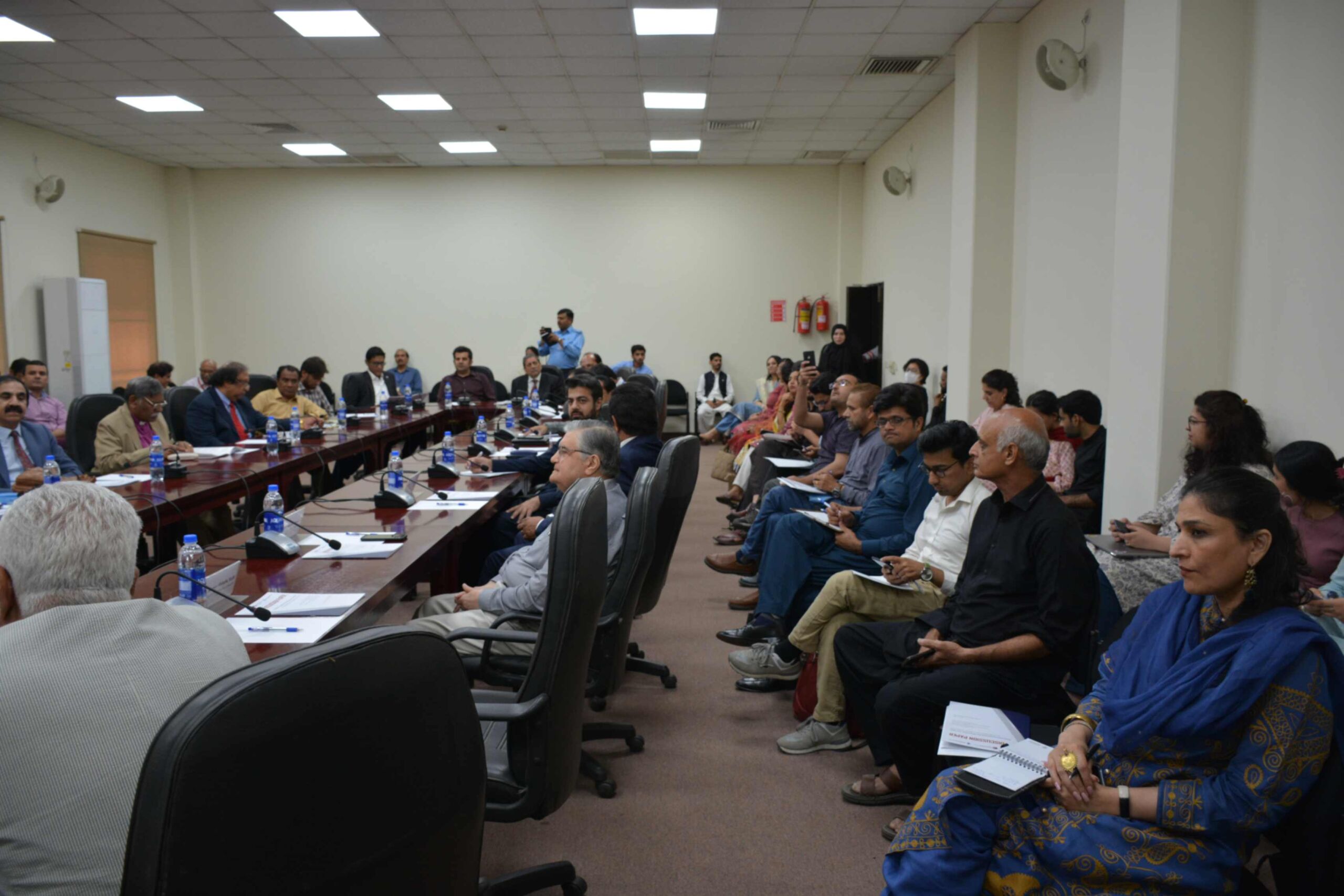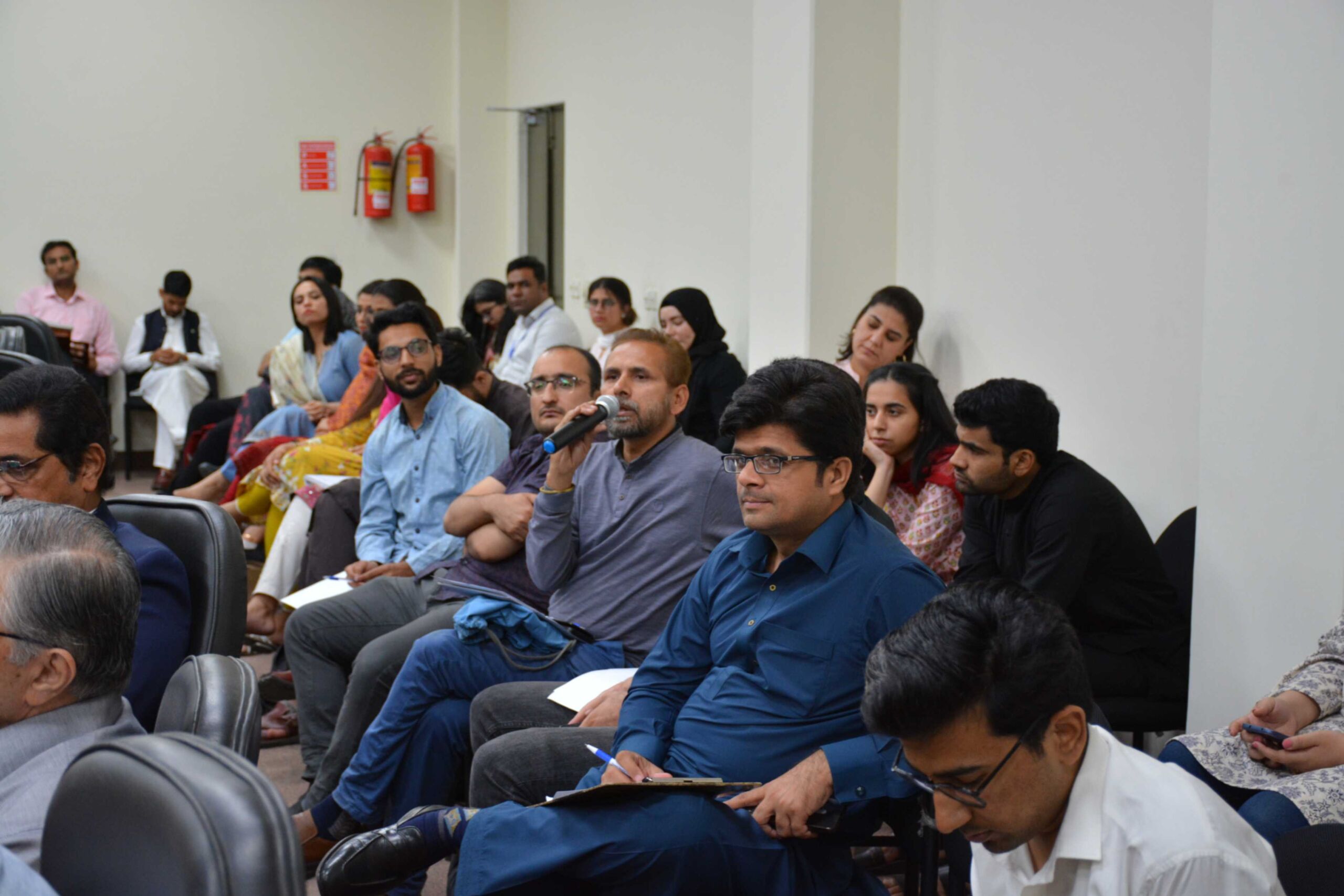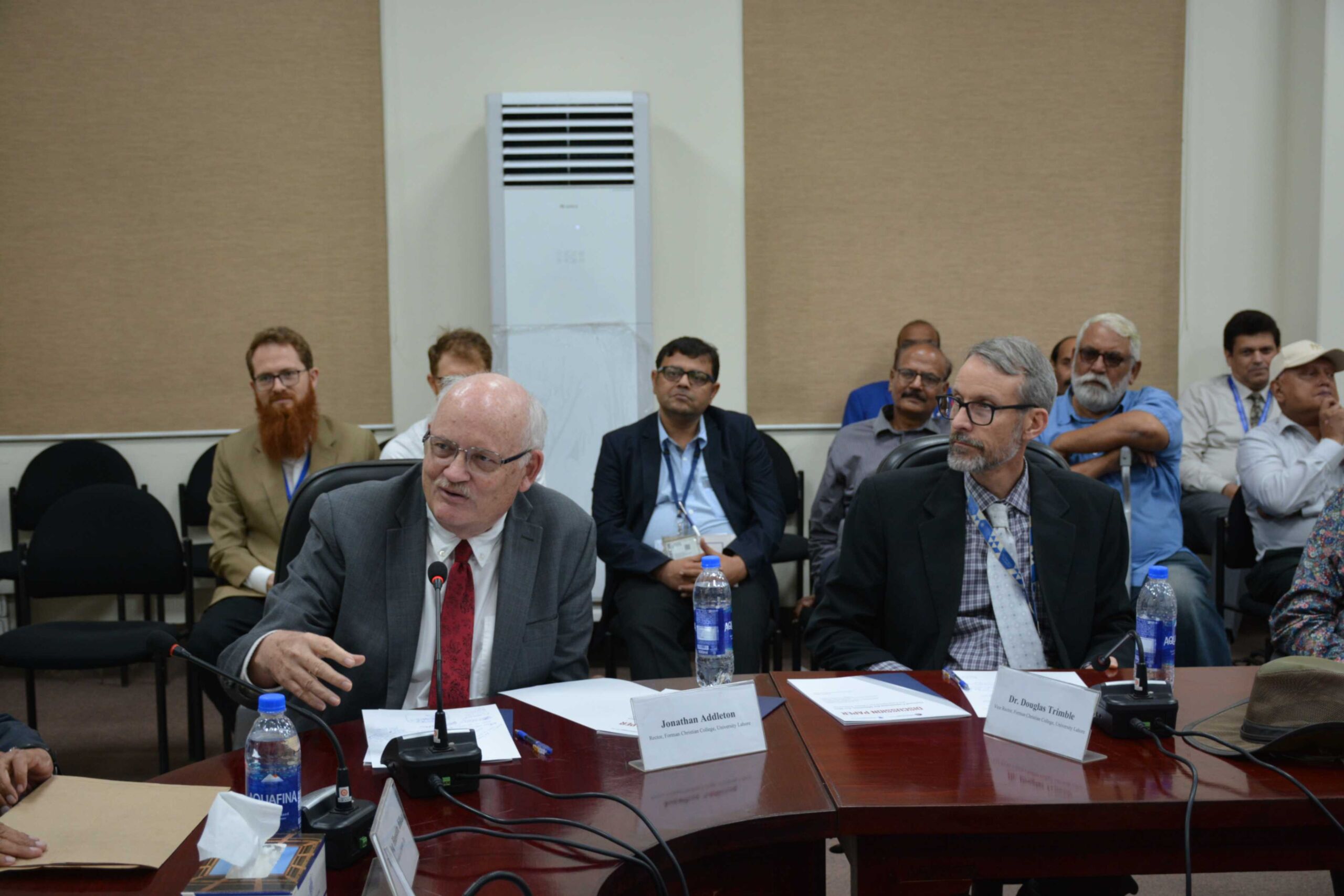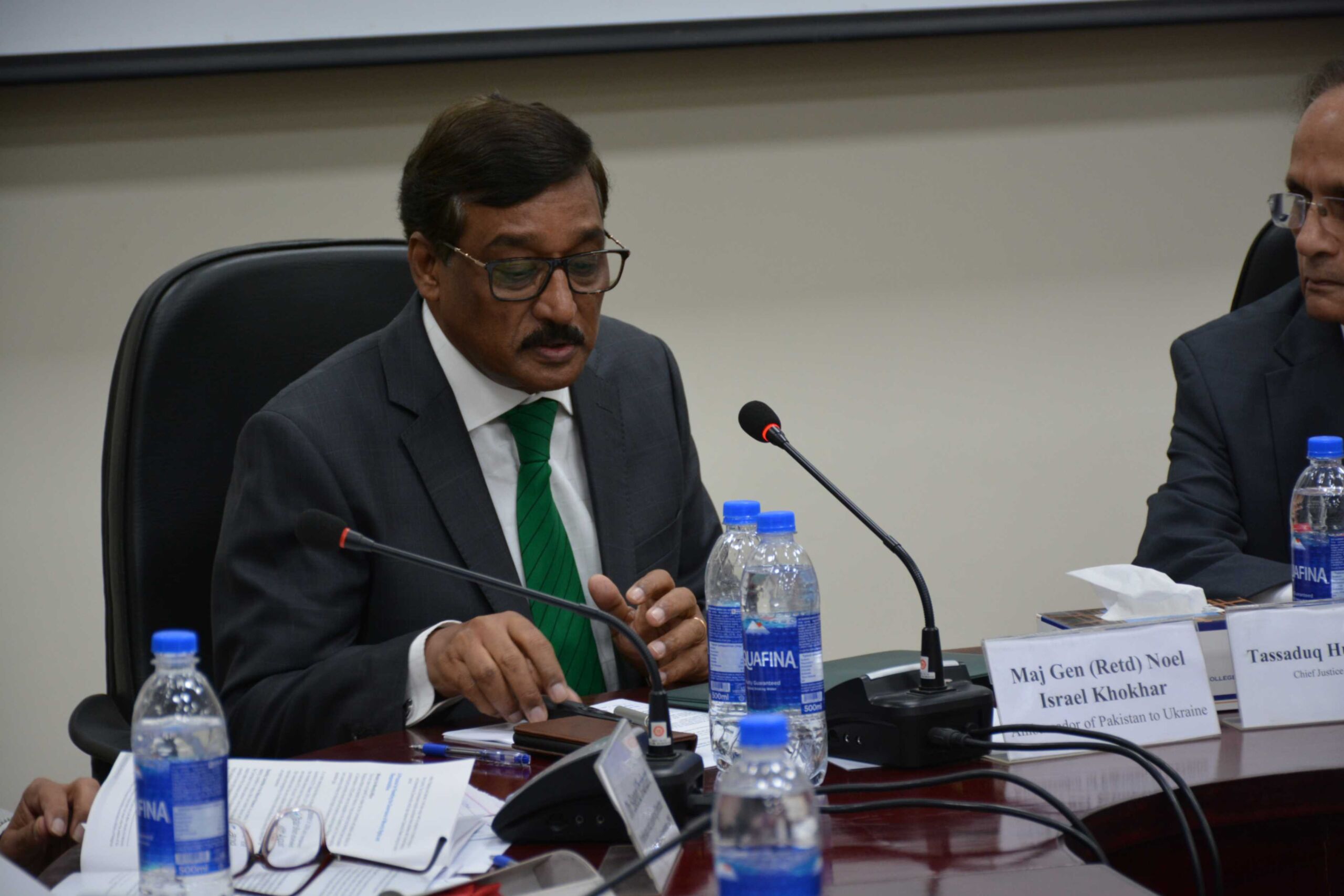
National Commission for Minorities Act 2023: An Expectation for a Better Tomorrow
Seminar
Past Event
May 7, 2024 - 5:00 pm |
May 7, 2024 - 7:00 pm
Dr. Noel Khokhar
E-002 CPPG FCCU
Upcoming Event
On Tuesday, May 7 th, 2024, CPPG organized a seminar on “National Commission for Minorities Act 2023: An Expectation for a Better Tomorrow”. Dr. Noel Khokhar HI(M), a retired Major General of the Pakistan Army, former Ambassador of Pakistan to Ukraine, and former Executive Dean of the School of Business Management, Forman Christian College was invited as the guest speaker. Honorable former Chief Justice of Pakistan Tassaduq Hussain Jillani presided over the seminar. As the 21st Chief Justice of Pakistan, Justice Jillani has been known for his commitment to advancing minority rights and upholding human rights. Notably, he had taken proactive measures after the tragic Peshawar church incident in 2014. He is currently serving as the honorary co-chair of the World Justice Project.
Dr. Khokhar began his discussion by addressing the plight of minorities in Pakistan, in the form of overt and covert discrimination, and marginalization. They occasionally suffer from outright persecution like the Jaranwala attack in 2023 and the All Saints Church bombing in Peshawar.
However, after the All Saints Church bombing, the then Chief Justice Jillani, took a sue- moto, directing the federal government to constitute a task force to develop a strategy for fostering religious tolerance. Following a judicial directive in 2014, efforts were made to establish a National Commission for Minority Rights, though the progress was sluggish. The civil society organizations and minorities forwarded their concerns to the Supreme Court of Pakistan. After four years, the Supreme Court intervened, appointing a commission to implement the judgment. However, the government’s response fell short of the expectations. Some progress was made, but the National Commission was still not constituted. After a further delay of two years, the Ministry of Religious Affairs and Interfaith Harmony of the PTI-led government, under the scrutiny of the Supreme Court, half-heartedly constituted a commission for minorities under an administrative order. Eventually, in 2023, the National Commission for Minorities Act (NCMA) was passed by the national assembly under the PDM government. However, it has yet to be passed by the Senate.
Khokhar provided an overview of the National Commission of Minorities Act 2023. The proposed commission shall comprise of 29 members. The majority of members numbering 17, would be non-official representatives of various faiths while 12 members shall be official members. Preferably, one-third would be women members. The commission, headquartered in Islamabad, is mandated to develop a national action plan for protecting and promoting minority rights, conducting inquiries, and managing finances autonomously. Presenting his opinion, Khokhar shared that the commission is assigned to study the application of international minorities rights, agreements, and conventions and provide the government with reports, proposals, or recommendations necessary for the effective application of such rights, agreements, and conventions. He argued that this advisory role is a huge undertaking which the commission cannot fulfill without the dedicated support of academia. Therefore, it is essential that while the commission coordinates with NGOs and INGOs, it is supported by a dedicated termed “Institution for Minority Studies”. He further said that the act mandates the commission to assess and monitor the implementation of constitutional guarantees and provide safeguards for the protection of minority rights. The commission is also tasked to examine and review existing or proposed policies, plans of action, legislation, and administrative instruments, and recommend amendments.
Khokhar stated that at the socio-political level, the minority population has shrunk despite overall demographic growth, except for the Hindu community. He proposed that reforms are needed to enhance minority representation in the parliament. Since the members of the minority communities are not elected directly, they are more dependent on party chiefs rather than directly representing the minorities. Khokhar proposed an option of a double vote that can benefit the minority community. He further advocated for a robust national action plan, guided by principles such as a rights-based approach, transparency, and inclusive participation. He suggested clustering tasks into categories like rights protection, awareness, and interfaith harmony, alongside a standardized national data bank. He also emphasized the need for a complaint registration center and helpline to facilitate minority grievances, with the commission offering legal support and conducting inquiries where necessary.
The retired Chief Justice of Pakistan Tassaduq Hussain Jillani lauded Dr. Noel Khokhar efforts in advocating for minority rights, emphasizing the significance of such initiatives in promoting inclusivity and social harmony. The session was followed by a stimulating Q/A session.


